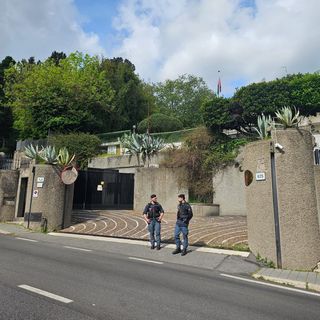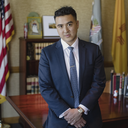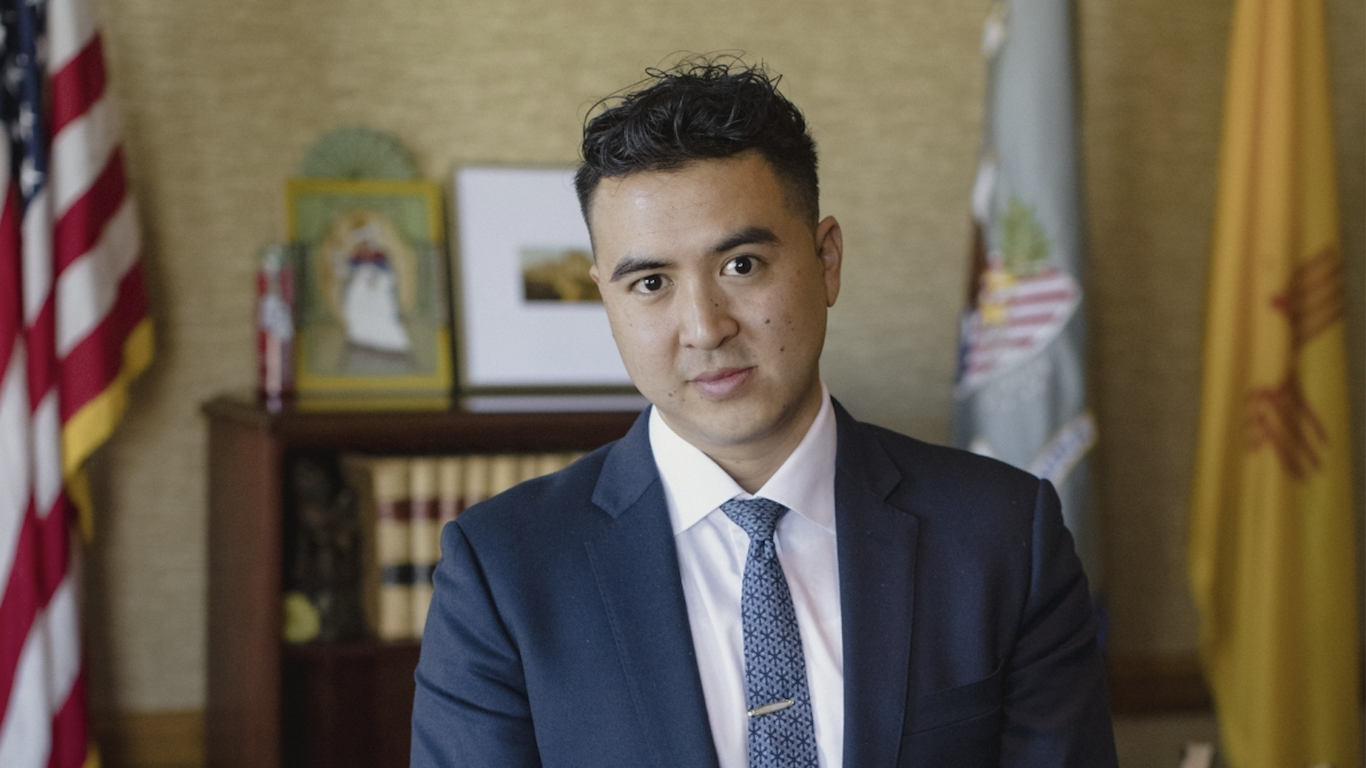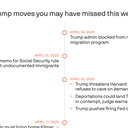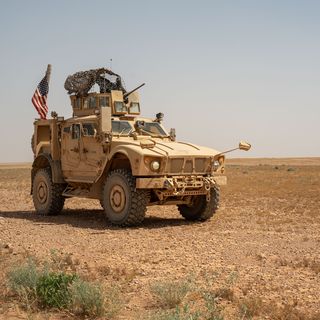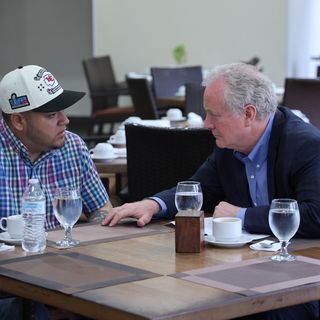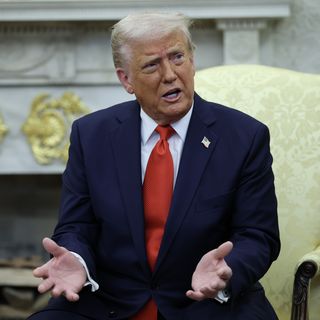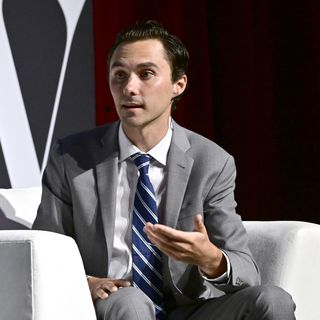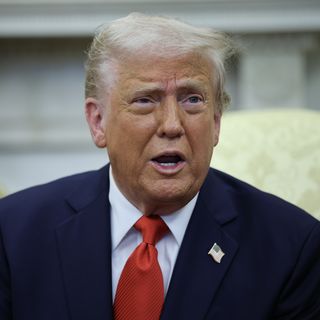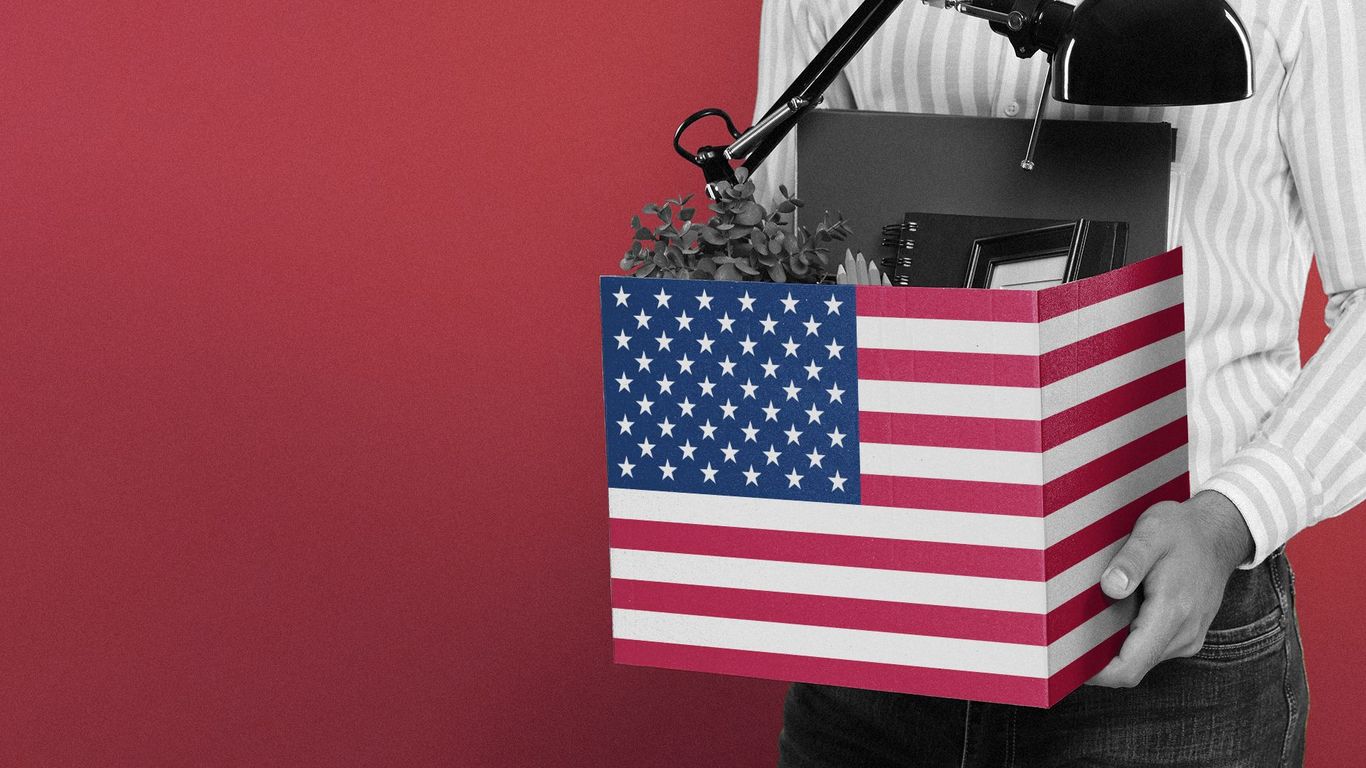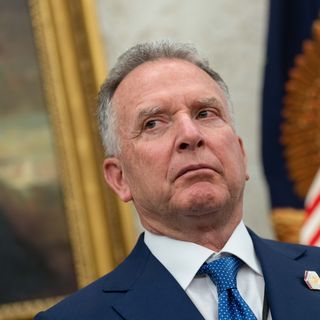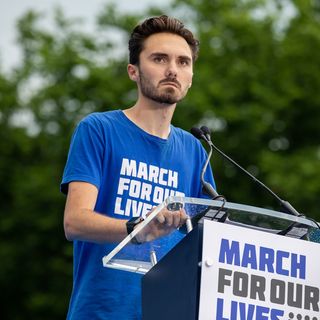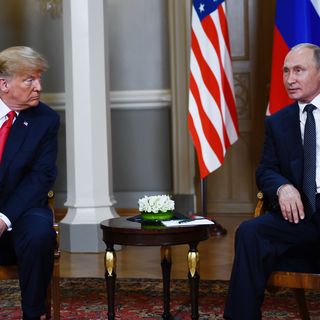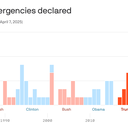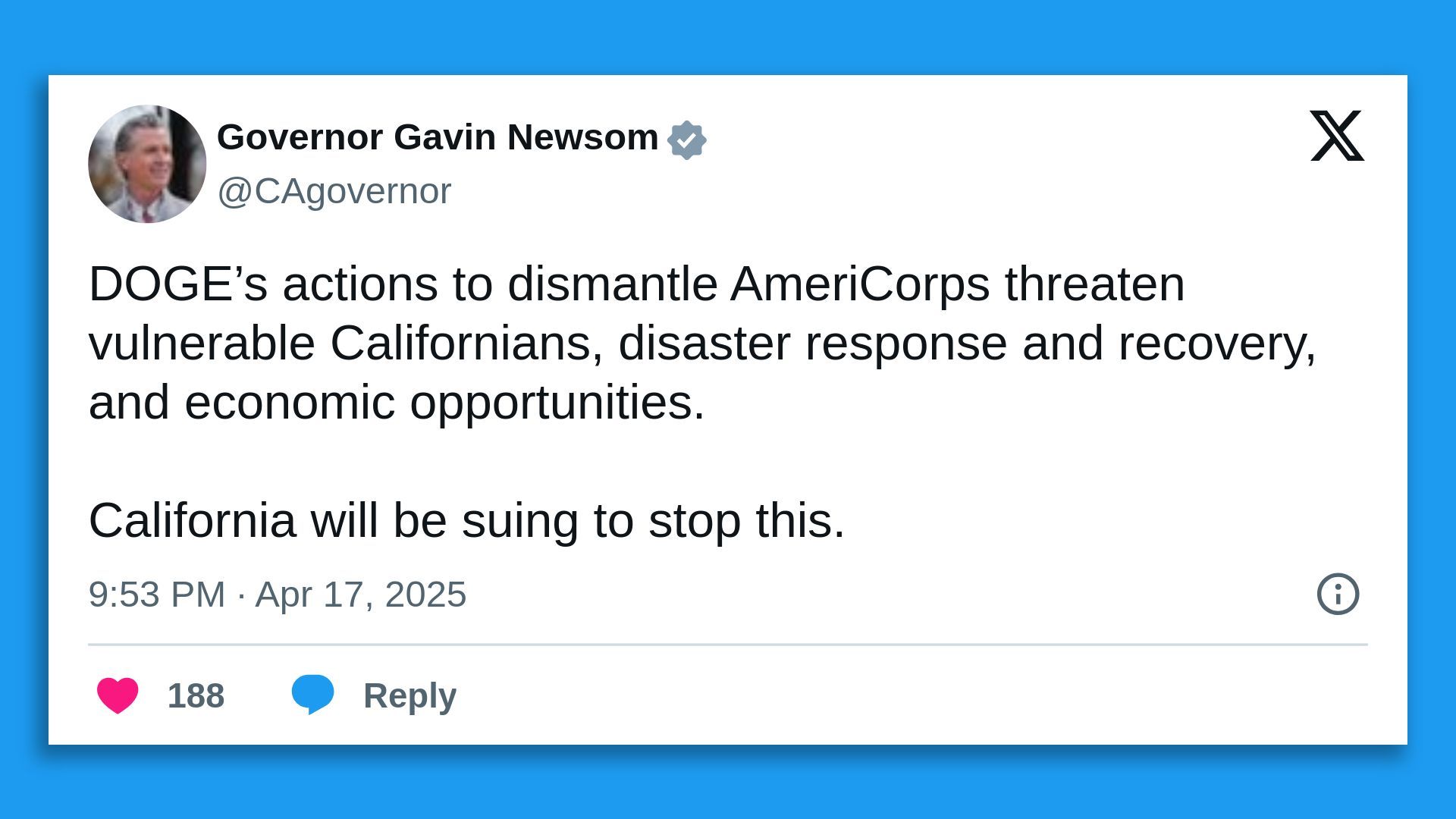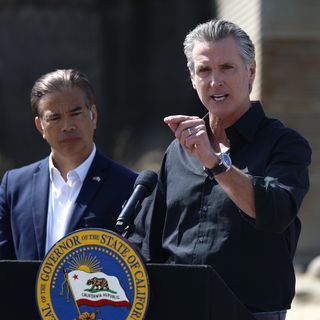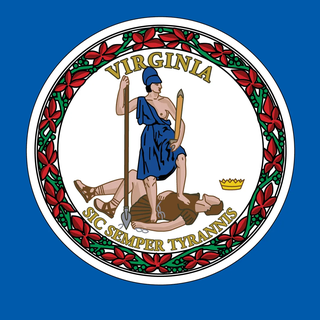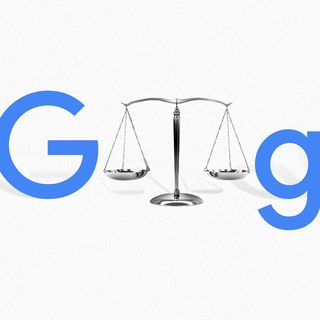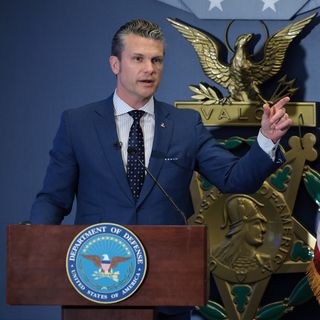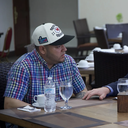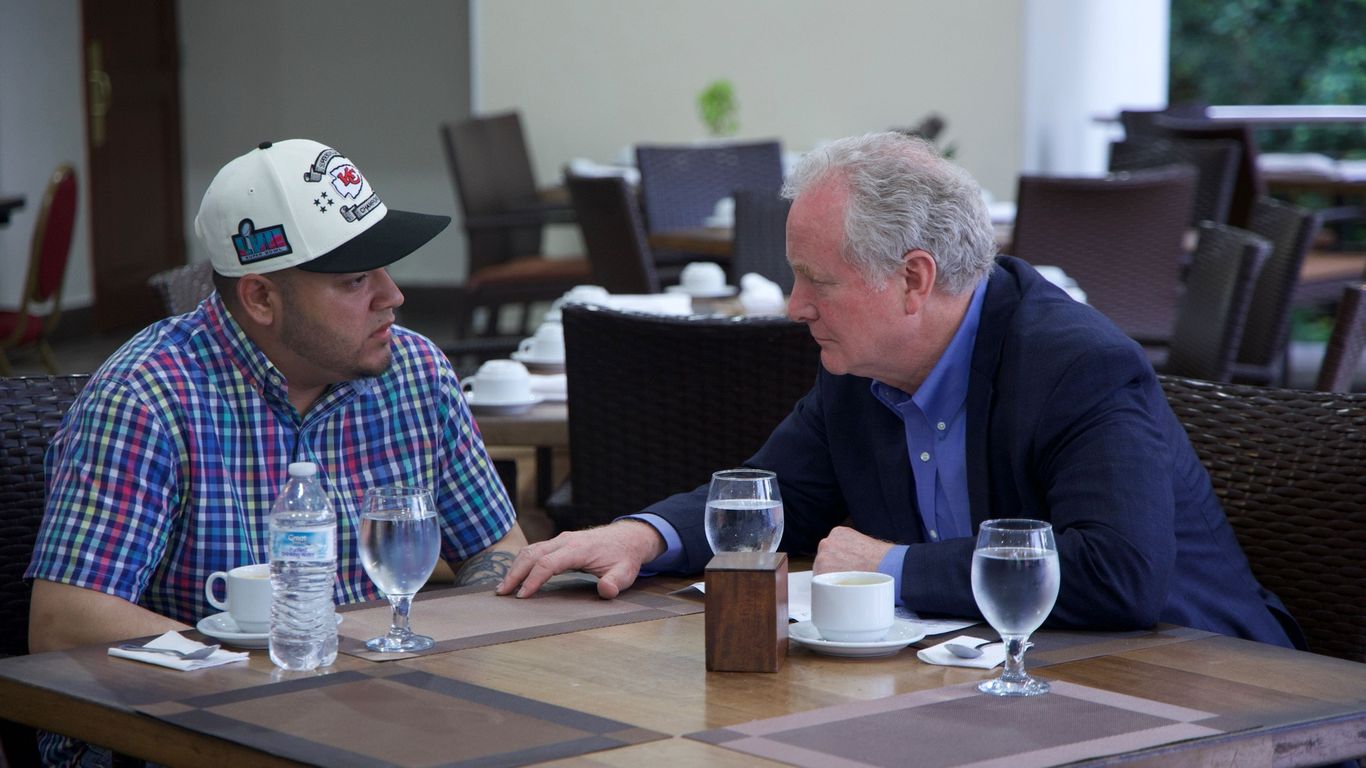U.S.-Iran nuclear talks underway in Rome as Trump backs diplomacy over strike
Rome - A second round of U.S.-Iran nuclear talks are underway, this time in Rome, with President Trump's envoy Steve Witkoff and Iranian Foreign Minister Abbas Araghchi leading the delegations.
Why it matters: The talks are taking place with debate still raging within the Trump administration — and between the U.S. and Israel — over whether diplomacy or military strikes are more likely to prevent Tehran from obtaining a bomb.
- For now, Trump is holding back the hawks, including Israeli Prime Minister Benjamin Netanyahu, and focusing on getting a deal.
- "I want Iran to be great and prosperous and terrific. But they can't have a nuclear weapon. And if they have a nuclear weapon, you'll all be very unhappy because your life will be in great danger," Trump told reporters in the Oval Office on Friday.
State of play: While the first round last weekend in Oman was focused on setting the tone and format of the talks, U.S. officials say their goal for the second round is to produce a framework for how the negotiations will proceed.
On the scene: The talks started shortly before noon local time at the residence of the Omani ambassador in Rome's quiet diplomatic quarter.
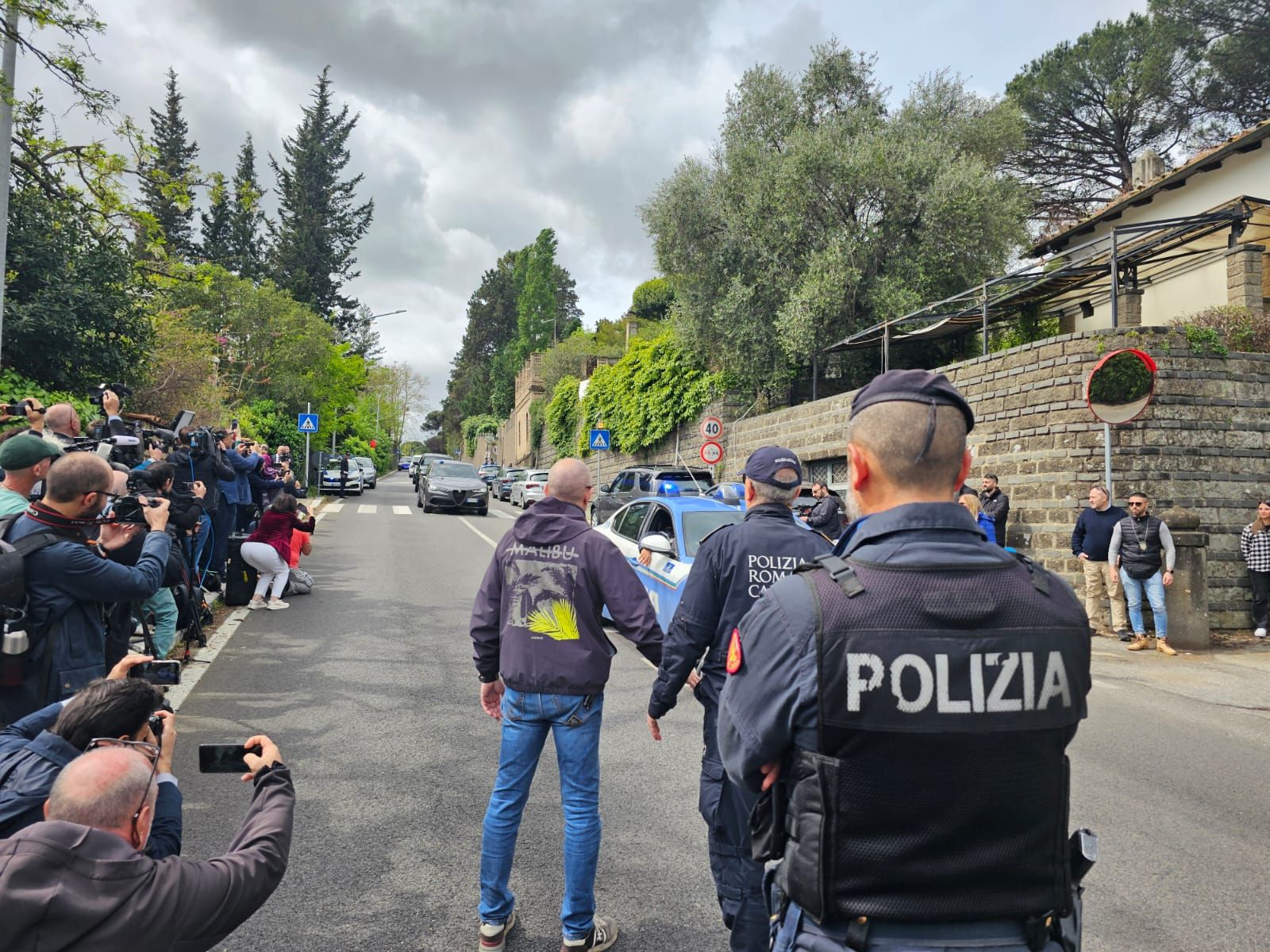
- Dozens of reporters gathered in the narrow street in front of the Omani diplomatic compound. Araghchi arrived first after a short drive from the Iranian embassy, which is located 300 feet down the street.
- Witkoff's motorcade which arrived 30 minutes later, missed the driveway and had to reverse and circle back in the narrow street.
- Oman's Foreign Minister Badr Al-Busaidi is also attending in the role of chief mediator.
Between the lines: The U.S. had requested the venue shift in part because of the long travel time between Washington and Muscat, but the Iranians wanted Oman — one of the few countries with friendly relations with both sides — to remain as mediator.
- Witkoff traveled to Rome after an undisclosed meeting in Paris on Friday — revealed by Axios — with two senior Israeli officials.
- The officials, strategic affairs minister Ron Dermer and Mossad chief David Barnea, slipped into Paris for the low-profile meeting to try to influence the U.S. position ahead of the talks.
Friction point: U.S. officials said their aim is to get a deal that includes the elimination of Iran's uranium enrichment program, but the Iranians made clear that crosses their red line.
What they're saying: Ali Shamkhani, a senior adviser to Iran's supreme leader, laid down Iran's principles for a nuclear deal Saturday on X.
- He stressed the Iranian negotiators have "full authority" to reach a deal based on "seriousness and balance," but that such a deal must include guarantees the U.S. won't walk away again, as Trump did in 2018.
- Shamkhani added that a deal must include the lifting of sanctions imposed on Iran, and absolutely will not include the full dismantling of Iran's nuclear infrastructure. Netanyahu has urged the U.S. to only accept a deal
- He added that during the talks the U.S. must contain Israel and stop threatening to attack Iran. "Iran has come for a balanced agreement, not surrender," he concluded.
